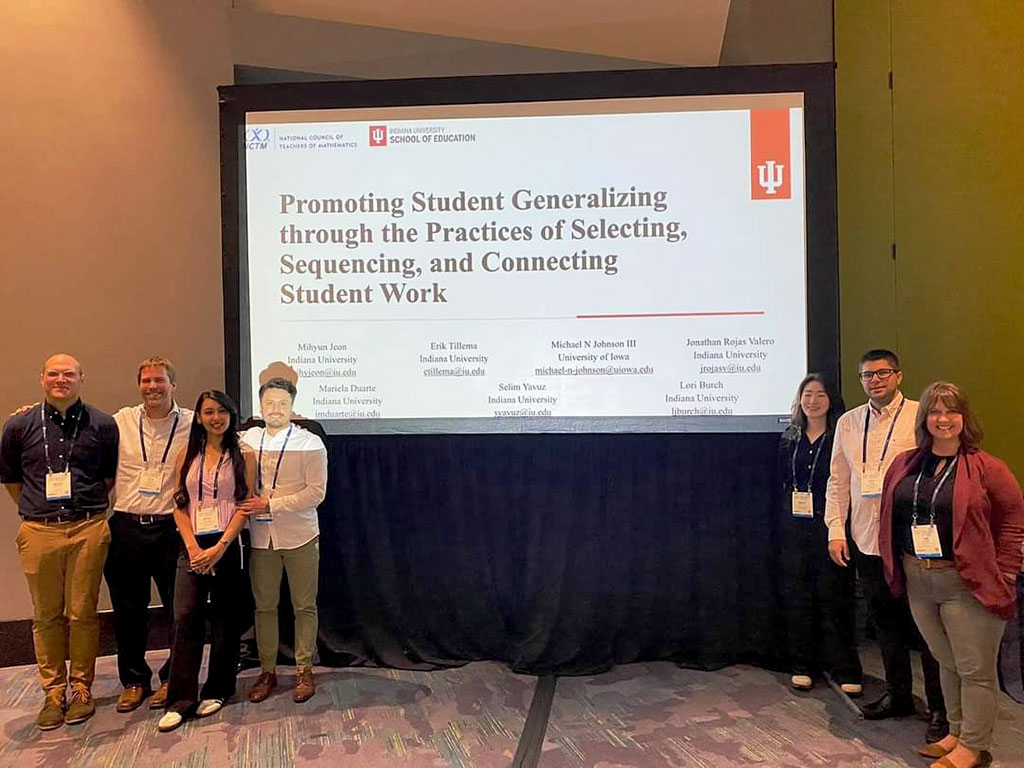A four-year project to help improve math education culminated with a presentation at a national conference for two faculty members and five graduate students.
The project included working with three local math teachers on what discussion-based mathematical practices can look like, how they can look different in different classrooms. Using mini-units that were either research-designed or teacher-designed, researchers looked at the problems the teachers came up with, as well as work from the teachers’ classrooms, and then observed two different teachers implementing that problem and compared what they did.
Associate Professor Erik Tillema said the main focus of the project is how teachers support generalization, or the ability to recognize patterns in relationships between numbers, in the classroom. During their presentation on the project at the National Council of Teachers of Mathematics, researchers shared their data with the audience, made up of experienced teachers, and were able to translate that research into practical ideas.
“Teachers can use these tools in different ways in their classrooms, and that’s actually ok,” Tillemma said. “We weren’t intending to have them just enact a singular form of instruction but rather to think about their own practice in relation to their goals and support them to implement what they felt was effective instruction for their students.”


